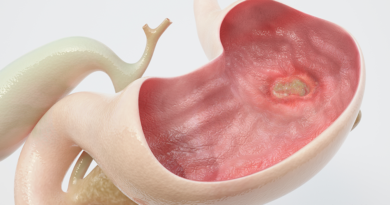Most Common Challenges With Drug And Biomarker Bioanalysis: A Complete Overview
Biomarker bioanalysis is crucial for establishing a robust analytical method for quantifying the specific biological response of the marker in the chosen matrix. It also plays a massive role in the assessment of the efficacy and safety of repurposed or novel therapeutic drugs.
As indicators responsible for measuring normal and abnormal biologic/pathogenic processes, biomarkers play a crucial role in medical science to administer patients’ health and improve drug development processes.
Bioanalytical services involved in drug and biomarker bioanalysis often face various challenges through the crucial stages of the whole process.
Some of these are discussed below:
- Unstable Compounds
- Complex Tissues
- Large or Divergent Analytical Ranges
- Non-specific Binding
- Time constraints on discovery
- Working around micro-sample requirement/limited sample size
- Processing complex matrices.
- Selection of appropriate system calibrating matrix
Unstable Compounds
Finding the best matrix for analyzing the compound of interest is an essential and crucial part of the process. Lack of stabilization reagents, not ensuring the correct temperature is maintained throughout the process, exposing the compound to light (if it is photosensitive), and not following sample collection protocols can interfere with the sample. Matrix optimization can be done for ensuring this does not happen.
Challenging Matrices/Complex Tissues
Hard tissues are complex to work within a bioanalytical laboratory. Congealing tissue homogenates can help overcome the challenge. Additionally, contaminated or stratified tissues are also challenging for the drug and biomarker bioanalysis. Homogenizing these entire tissues can help fix this problem.
Instrument Optimization
Lack of instrument optimization for the bioanalytical processes and lack of customization of buffers, extraction solvents, or inhibitors can pose a challenge for the bioanalysis. These can be fixed easily by the bioanalytical lab services for up or down-regulation.
Analytical Range
Having a magnitude analytical range helps in determining the data better. Hence the small analytical range is a challenge for drug or biomarker validation. The range of the assays allows flexibility and makes the assay fit for the purpose.
Sample Collection
Bioanalytical services working with urine, CSF are low protein matrices and often see analyte losses, which becomes a challenge. Not using appropriate sample containers for evaluation is another aspect of poor sample collection that can pose a great challenge for the drug development process. 5-tube test absorption tests can help fix this challenge. Clinical kits provided by lab services can also help in avoiding this concern.
Time Constraint on discovery
One of the challenges faced during the drug development process is the need for quick results. A rapid turnaround times related to access data to meet client needs. This is a concern as it also affects the stability of the compound of interest. Standardized methods can help fix the time constraint issues.
Limited Sample Size
Micro-sampling or capillary sampling can be challenging for drug and biomarker bioanalysis. Optimization of extraction technique and analyte detection can help bioanalytical lab services to improve efficiency.
Apart from the challenges discussed above, there can be certain other challenges they can face. Since biomarker testing is an essential part of drug development, laboratory services need to ensure bioanalysis of biomarkers and drugs are done without making any compromises. Usually, select biomarker assay development can identify drug efficacy better than traditional clinical endpoints. Hence, it is important to ensure fixing of challenges faced and conducting the process with utmost care to produce reliable results.




